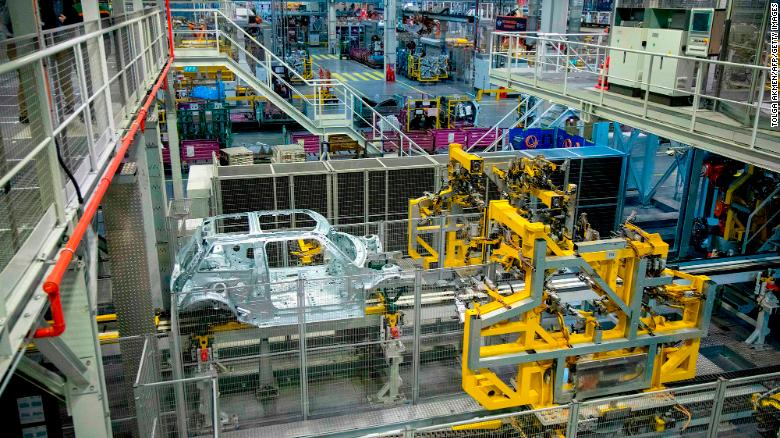
MUST WATCH
London (CNN)BMW announced Monday that it would invest £600 million ($750 million) in building two new electric versions of the Mini in the United Kingdom.
Production of the three-door Mini Cooper and the Mini Aceman, a compact crossover, is due to begin at BMW's factories in Oxford and Swindon in 2026, the company said in a
statement, as the sites gear up to make only electric vehicles from the end of the decade.
BMW (
BMWYY), which has owned the Mini brand since 1994, secured a "multi-million pound" investment from the UK government to support the development of the sites, the UK's department for business and trade announced Monday. A spokesperson for the department declined to provide a specific figure, citing commercial sensitivities.
The commitment by the German automaker will secure the future of Mini production in Oxford, where the original classic version of the small car was born 64 years ago. It also appears to represent a strategic rethink. Almost a year ago, BMW
told the Times newspaper that it planned to shift all Mini production from Oxford to China for efficiency reasons.
"Mini has always been aware of its history — Oxford is and remains the heart of the brand," Stefanie Wurst, head of the Mini brand at BMW, said Monday.
BMW will still build the same models at a new facility in China as part of its joint venture with Great Wall Motor (
GWLLF), and expects exports from that plant to begin in 2024. It will make the new Mini Countryman at a plant in Leipzig, Germany.
BMW's stock rose 1.3% following reports of the new investment in the UK.
Government help
The UK government funding is part of attempts to safeguard the jobs of 4,000 workers across the Oxford and Swindon facilities, as well as a broader effort to encourage
global automakers to build EVs and their components on UK soil.
In July, Indian conglomerate Tata Group unveiled
plans to plow
£4 billion ($5 billion) into a new "gigafactory" in the UK to supply batteries to EVs made by its subsidiary Jaguar Land Rover, in addition to other British and European automakers.
Susannah Streeter, head of money and markets at Hargreaves Lansdown, wrote in a note Monday that concerns had been rising over the lack of infrastructure in the UK to manufacture EV batteries and that money from the government had clearly helped "clinch this [BMW]
deal."
UK Prime Minister Rishi Sunak said in a statement Monday: "By backing our car manufacturing industry, we are securing thousands of jobs and growing our economy right across the country."
